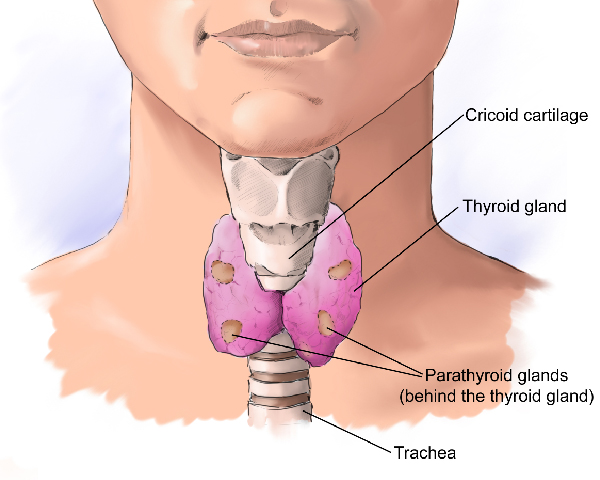
Thyroid Surgery
Thyroid is a butterfly-shaped small gland located in the lower front portion of the neck below the voice box. Thyroid gland produces hormones which regulate the metabolism in the body & keep organs functioning properly. Structural problems like swelling & growth of cysts or nodules may develop when thyroid gland produces too much hormone.
Thyroid surgery may then become necessary when these problems occur. During thyroid surgery the surgeon may remove all or just a portion of the thyroid gland. This surgical procedure is performed in a hospital & the patient is kept under the influence of general anesthesia. Thyroid surgery can effectively correct hyperthyroidism. Thyroid surgery is also performed for removing nodules or tumors or for correcting swelling or enlargement, known as goiter, from the thyroid gland. Goiters can block the throat & interfere with breathing, speaking & eating.
Types of Thyroid Surgery
Out of many types of thyroid surgery that are available, the following three are most common.- Lobectomy – This procedure is performed when swelling, inflammation or a nodule affects only one half of the thyroid gland. During lobectomy the surgeon will remove only one of the two lobes of the thyroid gland. The remaining portion will be able to retain some or all function of the gland.
- Subtotal Thyroidectomy – This procedure will remove the thyroid gland but will leave behind a small portion of thyroid tissue in order to preserve some function of the gland. Patients undergoing subtotal thyroidectomy will eventually develop hypothyroidism which is a condition that occurs when the thyroid gland is unable to produce sufficient amounts of the hormone. Daily hormone supplements are then required as treatment post operation.
- Total Thyroidectomy – Complete removal of thyroid gland along with the tissue is known as total thyroidectomy. This surgical intervention is most appropriate when swelling, inflammation or nodules affect the entire thyroid or when cancer is present in the gland.
Thyroid Surgery Procedure
It is important for thyroid surgery patient not to eat or drink anything after midnight before the day of surgery. On arrival at the hospital a nurse will insert an IV for administration of fluids & medication. Prior to operation, the surgeon will do a quick examination & answer any questions you have about the procedure. After this the anesthesiologist will administer which will help you stay asleep throughout the operation.
The surgeon will then make an incision over the thyroid gland for the operation. He will then carefully remove all or part of the thyroid gland. This procedure normally takes about two hours or more of time to complete because thyroid is a small gland which is surrounded by nerves & other glands. After the operation you will wake up in the recovery room & the nurse will ensure that you are comfortable. Your vital signs will be checked & pain medication administered as required. You will remain under observation for some time before being discharged.
Recovery Following Thyroid Surgery
Most thyroid surgery patients resume normal activities on the day after surgery. However, they should wait for at least 10 days for engaging in strenuous activities like sports & high-impact exercise. The throat may feel quite sore for many days after the operation. Doctors may prescribe pain medications in order to relieve soreness & pain. You are most likely to develop hypothyroidism following thyroid surgery for which doctors will prescribe you hormone supplements which should be taken regularly. Moreover, this may also take several blood tests & adjustments to find out the right dosage.
